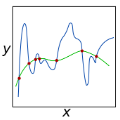We consider the problem of sparse nonnegative matrix factorization (NMF) with archetypal regularization. The goal is to represent a collection of data points as nonnegative linear combinations of a few nonnegative sparse factors with appealing geometric properties, arising from the use of archetypal regularization. We generalize the notion of robustness studied in Javadi and Montanari (2019) (without sparsity) to the notions of (a) strong robustness that implies each estimated archetype is close to the underlying archetypes and (b) weak robustness that implies there exists at least one recovered archetype that is close to the underlying archetypes. Our theoretical results on robustness guarantees hold under minimal assumptions on the underlying data, and applies to settings where the underlying archetypes need not be sparse. We propose new algorithms for our optimization problem; and present numerical experiments on synthetic and real datasets that shed further insights into our proposed framework and theoretical developments.
翻译:我们考虑的是缺乏非负矩阵因子化(NMF)的问题,它具有古老的正规化,目的是将数据点的收集作为少数非阴性少数因素的非阴性线性线性组合,并具有具有具有吸引力的几何特性,产生于古老的正规化。我们在爪哇和蒙塔纳里(2019年)(无广度)研究的稳健性概念概括到以下概念:(a) 强健性,它意味着每个估计的古型都接近于原始的原型;(b) 强健性弱,它意味着至少有一种回收的原型,接近原始的原型。我们关于稳健性的理论结果保证在基本数据的最低假设下维持不变,并适用于基本原型不需要稀释的环境。我们为优化问题提出了新的算法;对合成和真实数据集进行数字实验,以进一步了解我们提议的框架和理论发展。



